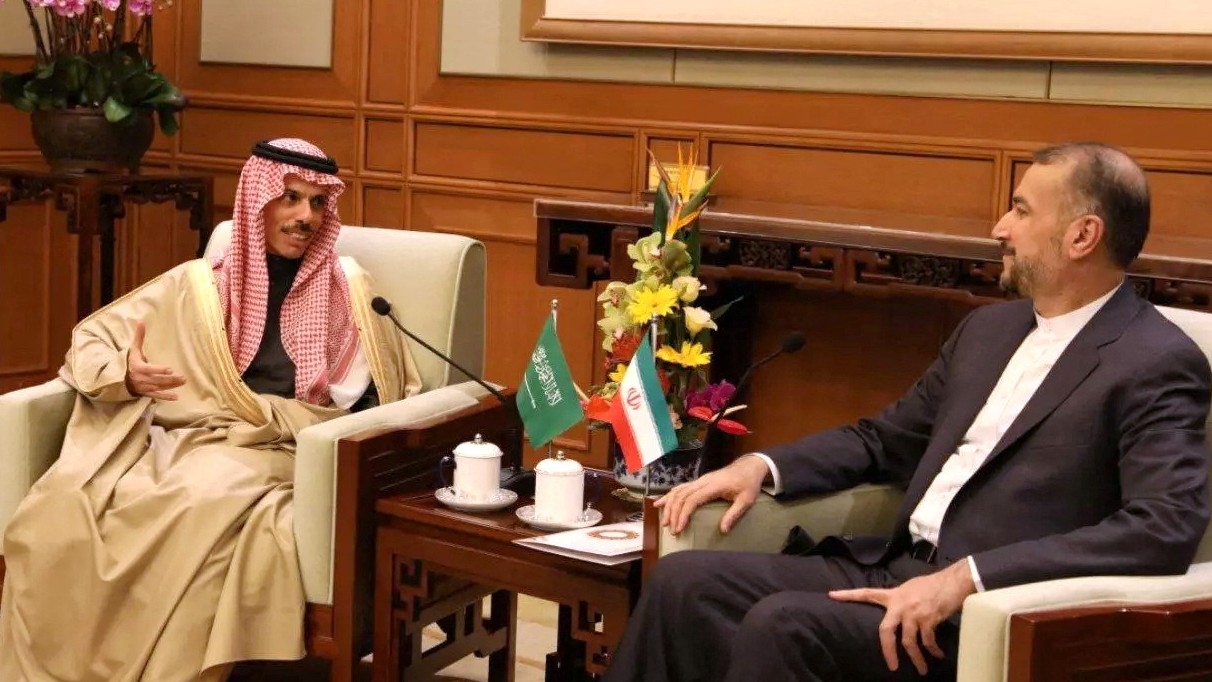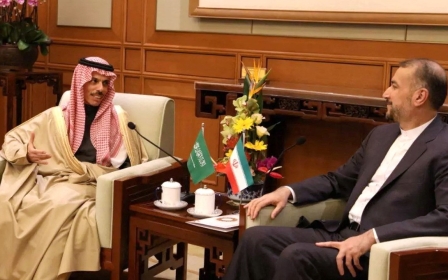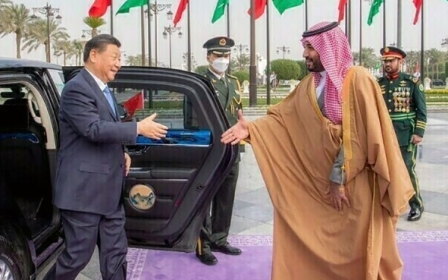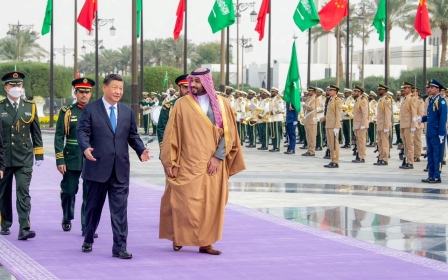Saudi officials arrive in Iran to discuss reopening diplomatic missions

Saudi officials arrived in Iran to discuss procedures for reopening Riyadh's embassy in Tehran and consulate in Mashhad after China brokered a deal to restore relations between the two regional powers, the Saudi foreign ministry said on Saturday.
After years of hostility that fueled conflicts across the Middle East, Iran and Saudi Arabia agreed to end their diplomatic rift and reopen their diplomatic missions in March.
Chinese President Xi Jinping helped broker the surprise deal which left the United States on the sidelines.
The foreign ministers of Saudi Arabia and Iran met in Beijing on Thursday for the first time in seven years. Soon after the two countries released a joint statement announcing that both nations would reopen their embassies for each other within two months.
The delegations also agreed to “expand” their bilateral talks to discuss “important issues”.
New MEE newsletter: Jerusalem Dispatch
Sign up to get the latest insights and analysis on Israel-Palestine, alongside Turkey Unpacked and other MEE newsletters
Diplomatic relations between Riyadh and Tehran had been strained since Saudi Arabia's 2016 execution of Shia cleric Nimr al-Nimr, a critic of the Saudi monarchy, and dozens of his supporters. Attacks by Iranian protesters on the Saudi embassy in Tehran following the execution prompted Riyadh to cut diplomatic ties with Iran.
Tensions between the two countries were already high at the time, given the deadly Saudi-led war on the Iran-aligned Houthi movement in Yemen that started in 2015 and the deaths of hundreds of Iranian Hajj pilgrims in a stampede in the same year.
As part of the agreement signed between the sides last month, both sides "emphasised the respect for the sovereignty and non-interference in the internal affairs of each other" and agreed to implement a security cooperation agreement signed in 2001.
The agreement was widely seen as a diplomatic victory for China in the Gulf, which the US considers to be its sphere of influence.
Middle East Eye delivers independent and unrivalled coverage and analysis of the Middle East, North Africa and beyond. To learn more about republishing this content and the associated fees, please fill out this form. More about MEE can be found here.




